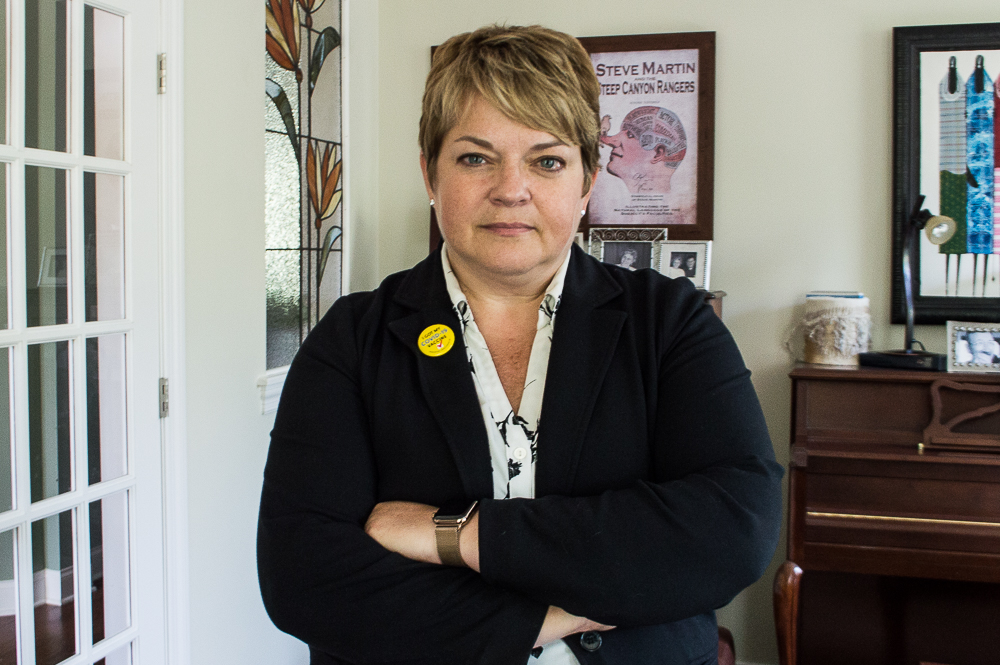
The Tennessee vaccine official who was fired last week week has issued an eight-page rebuttal to claims that she was let go for poor leadership.
The reasons laid out for Dr. Michelle Fiscus’ termination don’t match what’s found in her performance reviews. But the Tennessee Department of Health claims her fireable offenses occurred only during a period of time that is not documented by performance evaluations.
The lengthy rebuttal gives more of Fiscus’ views in a controversy that has gained nationwide attention. It comes as COVID rates are again rising and children are preparing to go back to school — many for the first time since the pandemic began.
Fiscus has said she was fired to appease Republicans in the state legislature. They were angered by guidance she sent to COVID vaccine providers that Tennessee case law generally allows people as young as 14 to be vaccinated without their parents’ consent. That practice was established by a court case decades ago.
More: Tennessee’s “Mature Minor Doctrine” for health care providers
The memo recommending her termination was given to WPLN through a public records request and was included as part of Fiscus’ personnel file. In it, one of Fiscus’ supervisors, Dr. Tim Jones, writes a laundry list of offenses that he says Fiscus committed between December 2020 and July 2021.
Jones wrote that Fiscus did not have good working relationships with her team, lacked an effective leadership style, and failed to manage the state’s vaccine program during the pandemic.
It even said Jones, and another supervisor, Dr. John Dunn, had met with Fiscus to “mediate complaints against Dr. Fiscus of disrespectful treatment and ineffective management.”
In her response, Fiscus blames the stress of the pandemic for complaints against her, saying the emergency created by COVID made it necessary for her to work long hours, spend a lot of time in meetings and hold onto tasks that she was advised to delegate.
“This has been a pandemic of historic proportions and a COVID-19 vaccine roll-out that required that I, as well as members of my team, work extraordinary hours for months on end,” Fiscus wrote. “It was stressful and, at times, there were disagreements.”
No complaints from Fiscus’ teammates, nor other disciplinary action, were documented in her personnel file. And her performance review from 2019 to 2020, which includes the first six months of the COVID pandemic, paints a very different picture from her termination letter.
Fiscus was praised by her supervisors for her attention to team dynamics and for exceeding expectations running the immunization program — especially under the strain of the beginning of the COVID-19 pandemic.
“Dr. Fiscus has consistently exceeded expectations during this evaluation period,” Dunn wrote. “Her leadership in running the program activities has been exceptional.”
Dunn went on to commend Fiscus for the ways she leads her team, writing that “her attention to team dynamics and staffing have been outstanding.”
Jones, who wrote the letter recommending Fiscus be fired, approved that performance review.
There is no performance review after October 2020; she would have received her next evaluation in the fall. The Department of Health declined to provide further comment.
In her rebuttal, Fiscus says that Jones recruited her to her position as medical director of Tennessee’s immunization program. And Fiscus writes that Jones warned her that her employment “was threatened” in late June 2021. That warning came just after Fiscus was called out by name Republican state legislators for the memo on vaccinating teens without parental consent.
When Fiscus asked on what grounds she would be terminated, she says Jones replied, “None, as far as I’m concerned,” and said he would continue to fight for Fiscus to remain on staff. She says Jones even sent her an orchid and scones baked by his wife just a few days before writing the letter requesting her termination.
“This does not seem to be behavior consistent with that of an individual who would write this letter of justification that was dated just two days later,” she writes.

